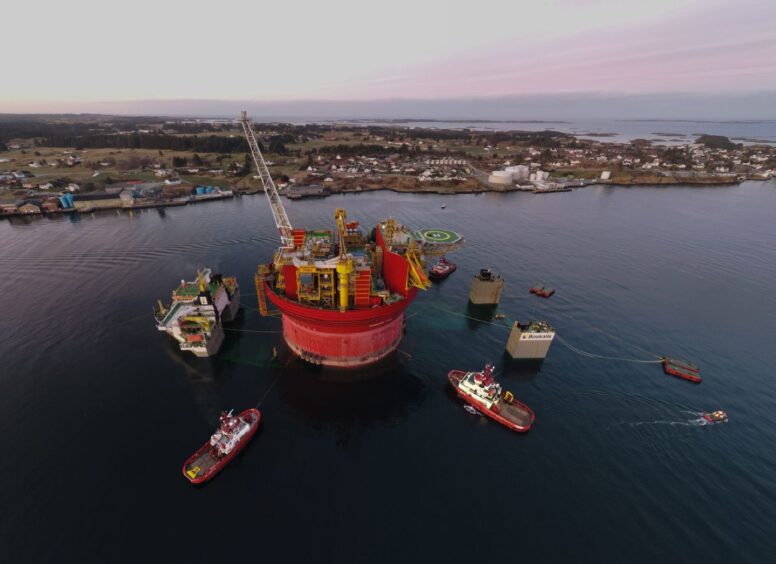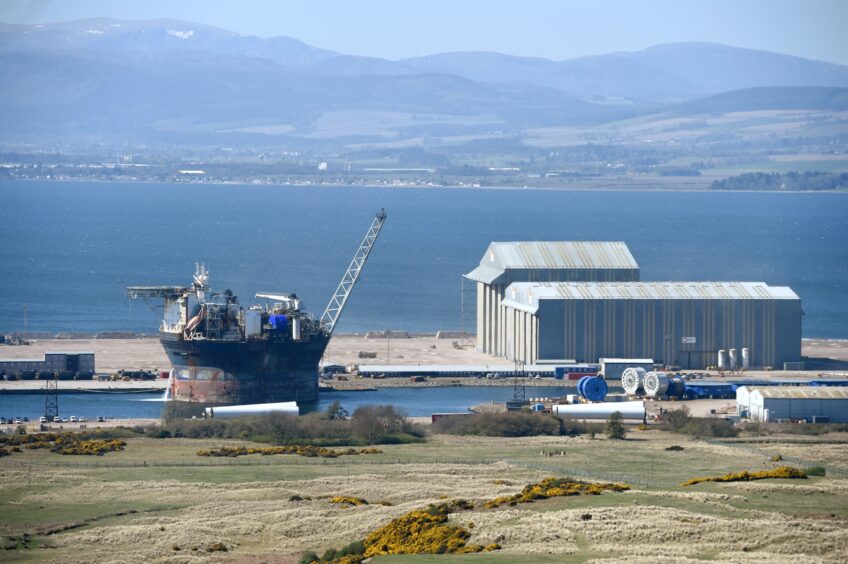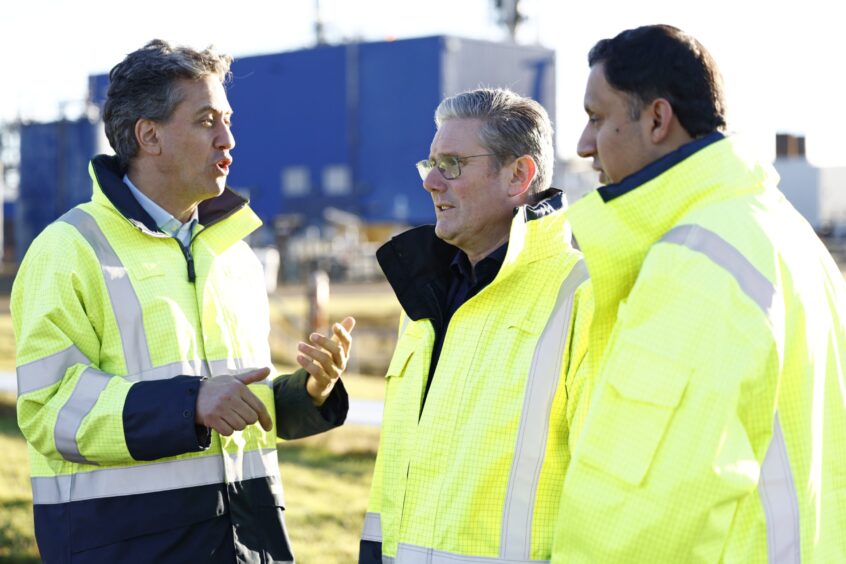
Amid ongoing scorn over windfall taxes and a looming general election, the outlook for new project sanctions in the North Sea has remained cloudy throughout 2023.
Despite this, those developments that have moved have cast a bright light – the sanctioning of the long-awaited and contentious Rosebank field being amongst the brightest. Its regulatory approval and a final investment decision (FID) by Equinor in September represented the fifth such decision this year, and the largest sanction by reserves since Buzzard in 2003.
In its wake, analysts hailed the possibility of a “bumper year” for the North Sea, with six developments now greenlit and a further brace of projects – Victory and Avalon – that could make it over the finish line by the end of December.
Looking ahead however, the picture may not be quite so buoyant.
Fewer sanctions on horizon
“2024 is expected to have fewer projects receiving regulatory sanction than 2023,” Westwood Global Energy analysts told Energy Voice in late November.
The problem is not simply a matter of committing capital, but the wider issue of a diminished hopper of sanction-ready projects. Westwood notes that all of this year’s projects submitted Environmental Impact Assessments (EIAs) to authorities in 2022, leaving a sparse roster heading into the new year.
“There has been a lack of submissions to date in 2023, with the only EIA submitted being for the Northern Endurance Partnership Development carbon storage project,” they noted.
“We expect some EIA submissions, however if the timeline for review and approval is not improved, we would not expect any new field developments sanctioned in 2024, other than those already submitted,” they cautioned.
Wood Mackenzie research director for North Sea upstream, Gail Anderson, was more positive – albeit narrowly.
“There will still be FIDs next year, despite the election, some of which are rolled forward from 2023,” she suggested. “Victory and Teal West may slip into 2024, although there’s still a month to go. We could see the Buchan redevelopment, as well as Avalon, Anning & Sommerville.”
Westwood too pointed to these developments but expects internal decision-making to last most of 2024, meaning they would be unlikely to be submitted in time to gain sanction. Even projects with backing and momentum, such as Buchan, Fotla, Marigold, as well as BP’s Kate, could fall into such a holding pattern.
All told, the group estimates there could be five EIA submissions for new field developments over the course of next year.
Cambo
A further “key watch” will be a decision by the North Sea Transition Authority (NSTA) over licences for the Cambo field – another contentious yet sizable development west of Shetland – currently set to expire on 31 March 2024.
Ithaca Energy CEO Alan Bruce recently noted that all technical work on a field development plan (FDP) had already been completed, and though it is in the process of securing Shell’s former stake, it still hopes to find another partner ahead of FID.
Ithaca said negotiations around a potential licence extension are ongoing, but the various hurdles to be overcome cast some doubt over any final commitment next year.
“FID on Cambo may be difficult in 2024 given the fiscal uncertainty and the need to find a partner. Operators who sanction projects, need to be reasonably confident that the economics can stand any future fiscal shocks that might hinge on the general election outcome,” added Ms Anderson.
All of this contrasts with the approach in Norway where Westwood has recorded 22 discoveries sanctioned for development this year so far, with associated reserves of around 1.35 billion boe – more than three times the reserves sanctioned in the UK to date.
“In 2024, Norway sanctions are expected to return to pre-2020 levels but the sector holds a high number of undeveloped discoveries which are being evaluated for development and will be progressed in the coming years,” the group noted.
Election season
On the political front, concerns over plans by Labour to end new exploration could be tempered by the relative stability that tends to precede a general election, Ms Anderson suggested.
Labour leader Keir Starmer caused uproar in the sector over the summer with a proposal to ban new exploration licences, though was at pains to make clear that drilling at existing fields would continue and there would be “no cliff edge”. He also confirmed that any licences granted between now and the next election would be honoured.
“The expected general election means that we are unlikely to see any big fiscal shocks in the run up to that, however, there could be discussion on future fiscal changes in the wake of the long-term UK fiscal review just completed,” she noted.
Indeed, while this review confirmed the sunset of the current Energy Profits Levy (EPL) in 2028 and the removal of tax barriers to encourage investment in areas like CCS and hydrogen, it also proposes a new mechanism which could be used to respond to market price shocks after the windfall tax lapses. In any case, it suggests marginal tax rates could stay higher for longer.
The present environment is also having a dragging effect on M&A activity with 13 deals announced this year including farm-ins.
Westwood agrees the outlook for 2024 is “uncertain, despite many opportunities on the market.”
The analysts expect M&A activity levels to be similar to 2023, with existing challenges continuing to hamper the market – plus a lack of prospective buyers.
“The EPL and political uncertainty continues to impact investor appetite, and ongoing oil and gas price volatility could slow the completion of any sale as buyers and sellers struggle to align on asset valuations,” they added.
The UK government is also set to put forward legislation on annual offshore licensing rounds, mooted by Rishi Sunak this year.
“Although it may struggle to get its whole legislative programme through before parliament is dissolved, we think it could prioritise this bill because it will want to demonstrate its commitment to the North Sea in an election campaign,” notes Ms Anderson.
“However, previous bid rounds have really failed to move the needle in terms of new commercial barrels over the past decade, so it’s not going to change the UK upstream outlook.”
And despite the raft of near-field licences already awarded as part of the 33rd Licensing Round, it’s unlikely that many, if any, will show significant progress in 2024.
Across the basin, Westwood has sight of ten exploration and four appraisal wells that could be spudded on the UKCS in 2024.
“This is similar to the nine exploration and four appraisal wells that are expected to have been completed by year end 2023 and a welcome increase in the number of wells drilled compared to the previous three years when only five to eight E&A wells completed between 2020 and 2022,” its analysts noted.
All planned exploration wells on its books are infrastructure-led and largely on the smaller scale, with the Parkmead-operated Skerryvore in the central North Sea being the only “high impact” target -with pre-drill resources in excess of 100 million boe.
Start it up
If the picture for new capital looks dim however, the outlook for start-ups is somewhat brighter – but also comes with a warning.
Westwood expects 2024 to be a better year than 2023 in terms of new field start ups. Only Neptune’s Seagull field and the single-well Alwyn East discovery have begun producing in 2023 to date, although it notes that Harbour Energy’s Tolmount East could still be brought onstream before the year end.
If that is the case, Westwood expects six other fields to start production in 2024, including the redevelopment of the two Penguins fields and Affleck.
But unless the project hopper is topped up, the consequences will soon be seen through the rest of the decade.
“Delays to the progression of new field developments though will impact UK start-ups post 2025, which will accelerate the rate of production decline in the UKCS,” its analysts warned.
As energy security concerns continue to dominate agendas across the economy, a lot of hopes will be riding on an improved picture for the basin as 2024 progresses.


